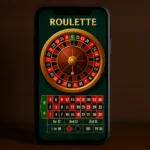Table of Contents
Does the house always win? Not quite. Here’s what you’re really up against.
Most casino games are designed to give the house an edge, which can be as small as 0.5% or as big as 25%. That’s the casino house edge for you, secretly nibbling away your bankroll while you’re busy chasing that win.
After years of playing and testing tens of casinos and games, I learnt one thing: if you don’t understand the house edge, you’re basically playing on guesswork.
In this article: What the house edge is, how it actually works, and most importantly, how to use it to your advantage. It really doesn’t matter if you’re spinning slots, punting on roulette, or doubling down at blackjack; understanding the house edge will help you play smarter.
You’ll also find a little bonus from me: which games give you the best shot and how to spot games with the lowest house edge (yep, casinos hide ‘em very well).
This one’s for you if you really wanna know how the odds are stacked.
What Is the Casino House Edge, Really?
Let’s break down the casino house edge, that sneaky little percentage that makes sure the house always (I mean it) has the upper hand. Casinos stay in the biz somehow, you know.
In simple terms, the casino’s house edge is the statistical advantage the casino holds over you in a specific game. It’s expressed in percentages and actually shows your average loss over time.
Say, you play a game with a house edge of 2%. It means that, on average, the casino will keep £2 for every £100 wagered. FYI, it doesn’t mean you’ll lose £2 for every £100 you play. It’s the expected result in the long run.
House Edge vs RTP: Don’t Mix ‘Em Up
Tell you what, if you know one, you’ll easily calculate the other.
So, the RTP, aka Return to Player, is the percentage of all wagered cash that the game pays you back over time.
Let me put it this way: most slots have a return rate of 96%; it means that you’ll get, on average, £96 for every £100 wagered over a long period (but individual sessions vary widely).
If the RTP is 96%, then the house edge is 4%. Easy, right? But essential for understanding your returns and making well-informed decisions.
So, yeah, games with a lower house edge and a higher RTP give you better chances.
How the House Edge Affects Your Winnings
Frankly, you won’t notice anything in the short term, and even get lucky and bag a small sum. But in the long run, the house edge (especially if it’s a big one) will show you clearly that the casino is always in the win.
It’s a quiet drain on your bankroll, which is why you should opt for games with a low house edge. And even so, managing your funds wisely and setting limits before you start playing are a must.
House Edge by Game: The Odds You’re Facing
Here’s a lowdown on the most common casino games and the usual house edge so you can spot the ones with the biggest return rates faster:
| Casino Game | House Edge (%) | Notes |
|---|---|---|
| Blackjack | 0.5% – 2.0% | Depends on rules and player strategy |
| Roulette (European) | 2.70% | Single zero wheel |
| Roulette (American) | 5.26% | Depends on the rules and player strategy |
| Baccarat | 1.06% (Banker), 1.24% (Player) | Avoid Tie bets (14.36%) |
| Craps | 1.36% (Pass Line) | Double-zero wheel |
| Video Poker (Jacks or Better) | 0.46% | With optimal play |
| Slots | 2% – 10% | Varies widely by game |
| Three Card Poker | 3.37% | Pair Plus bet is 7.28% |
| Caribbean Stud Poker | 5.22% | Based on optimal play |
| Keno | 20% – 30% | One of the highest house edges |
Slots: It varies from one game to another, but generally, they have some of the biggest house edges out there, from 2% to 10%.
Roulette: If you choose European roulette, you can enjoy a house edge as low as 2.7%, while the American variation jumps to 5.26%, all due to that extra zero.
Craps: A house edge of around 1.36% with the “Pass Line” bet.
Baccarat: The house edge can go as low as 1.06% if you bet on the banker, and 1.24% if you bet on the player.
Video Poker: Some versions can offer a house edge as low as 0.5%, that’s if you use the optimal strategy.
Blackjack: Somewhere around 0.5% if you’re using basic strategy. One of the best bets in the house, if you ask me.
How come table games have a lower house edge than slots? The answer is simple: player decision.
You see, in table games, your decision can change the outcome, such as choosing the right bets in baccarat and hitting or standing in blackjack. Play smart, and you can lower the house edge.
Slots? It’s all RNG, meaning randomly generated outcomes, and you can’t do anything to change the result.
How to Beat the House Edge?
Can you, though?
Well, you won’t directly change that house edge percentage, but you can do a few things to make the odds work in your favour. Here’s a pick of time-tested tips you’ll like:
Steer clear of flashy slots and choose games with the lowest house edge (table games) – that’s the most obvious advice.
Play smart, not hard – for instance, in blackjack, stick to basic strategy and avoid side bets to keep the house edge low.
Don’t overstay in-game – the more you play a game, the more the house edge will work against you.
Use bonuses to beat the house edge, especially cashback offers, no-wager free spins, or deposit match bonuses – they help you stretch your bankroll, BUT always check the fine print, especially for wagering requirements.
Set a budget in advance and stick to it – this will allow you to play responsibly and avoid chasing losses.
Know when to walk away – don’t try to win it all back in one session; if anything, you’ll allow the house edge to work even more against you.
Final Take: How to Spot Games with the Lowest House Edge
What I do? First, I check the game info and paytables. Some game variations can have lower house edges (for instance, single-deck blackjack offers better odds than multi-deck). Next, if you’re into slots, look for games with high return rates (above 96%).
To be on the safe side, always opt for classics that are known to have low edges, such as blackjack, baccarat, craps, European roulette, and video poker.
One more thing – check games on reputable review sites and look for RTP guides or game rankings by house edge.
Pro Tip: Avoid hidden red flags like “exclusive games” (in-house games that are known to have a higher edge), jackpot-heavy slots (prize pool contribution that will eat up your bankroll), fast-paced game shows (they usually have bad return rates), plus scratch cards, keno, or wheel games.
By the way, if casinos hide a game’s math, it’s probably because the numbers don’t favour you.
Stay sharp, fellas!
- Casino House Edge - May 31, 2025
- 5 Best Cashback Casinos in the UK - May 28, 2025










